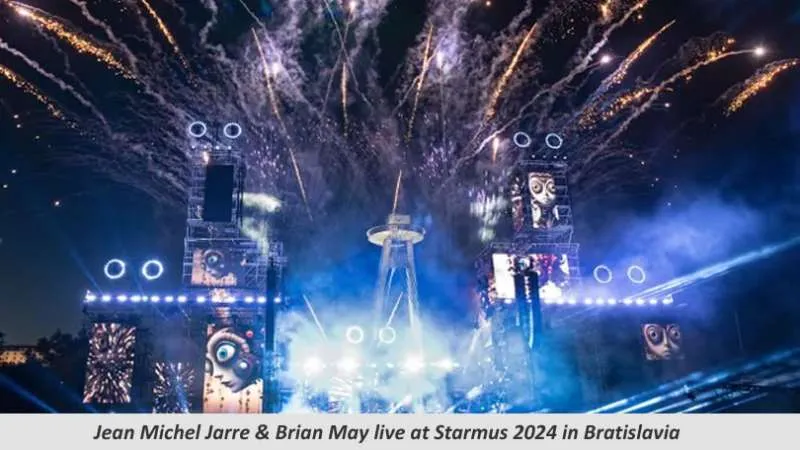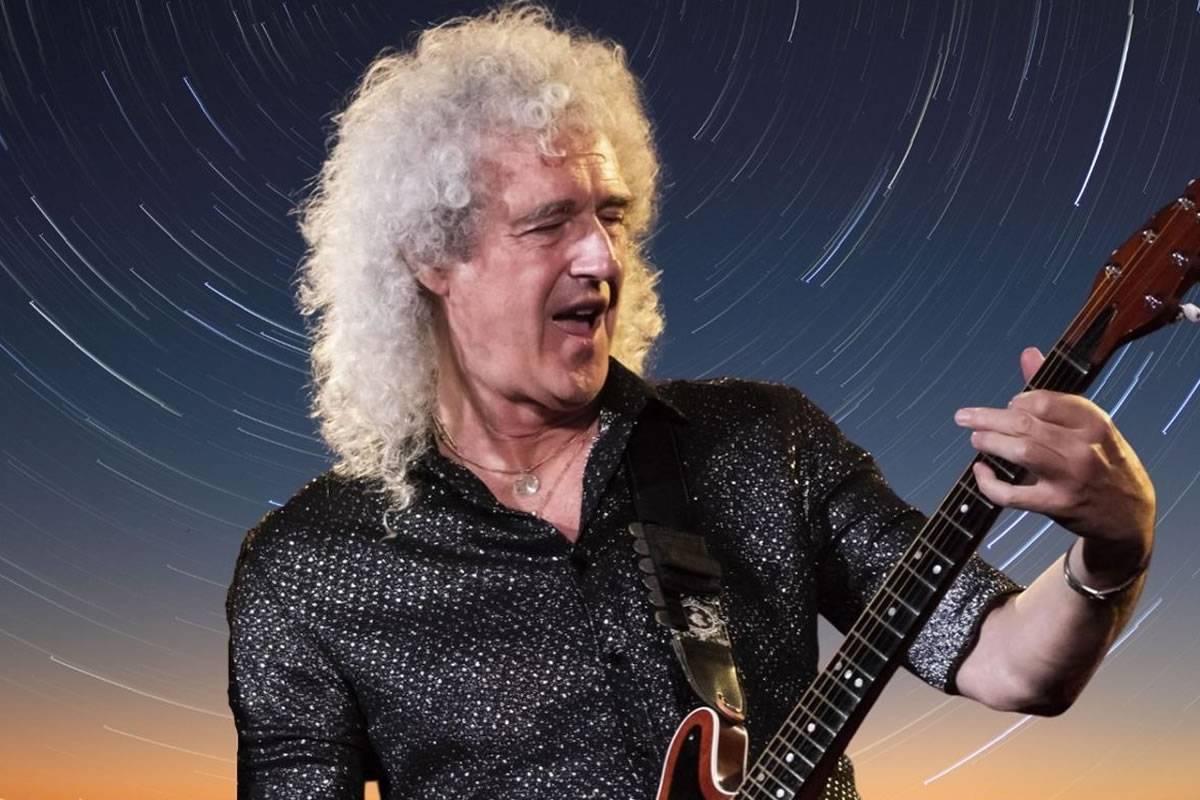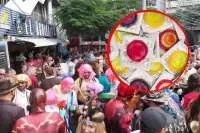Starmus 2025: The science and music festival returns to the Canary Islands
- 07-07-2024
- National
- Canarian Weekly
- Photo Credit: Starmus
The renowned Starmus Festival, an extraordinary blend of science, music, and art, is set to return to the Canary Islands in April 2025 for a historic edition on the beautiful island of La Palma. This special event, themed "Island of Stars," will tackle pressing issues like space debris and light pollution, while celebrating the island's exceptional stargazing opportunities.
Founded by astrophysicist Garik Israelian and Queen guitarist and fellow astrophysicist Brian May, Starmus aims to elevate science communication and engage the public with some of the most significant questions facing humanity. The festival, which traditionally occurs every two years, recently celebrated its seventh edition in Bratislava, Slovakia, drawing over 100,000 attendees.
A Special Edition for 2025
In a departure from its usual biennial schedule, Starmus La Palma will occur just one year after its previous edition, highlighting the significance of this event. According to a statement on Astronomy.com, all events will be open to the public and free of charge, making this the most accessible Starmus festival yet.
Focus on Environmental Challenges
The 2025 festival will focus on the environmental challenges posed by light pollution and space debris. Held in partnership with the Starlight Foundation, the festival is part of a broader recovery program for La Palma, which suffered significant damage from the Cumbre Vieja Volcano eruption in 2021. The three-month-long eruption destroyed over 3,000 properties and hundreds of acres of farmland.
La Palma: A Premier Stargazing Destination
Known as the "isla bonita" (the pretty island), La Palma is celebrated for its natural beauty and dark skies, making it a prime location for stargazing. The island is a UNESCO World Biosphere Reserve, with a third of its territory protected. The Roque de Los Muchachos Observatory (ORM), located on the rim of the Taburiente National Park at an altitude of 2,396 metres, houses the largest optical-infrared telescope in the world. La Palma was the first place to be declared a Starlight Reserve and Starlight Tourist destination, dedicated to preserving its natural landscape and pristine dark skies.
Exciting Program Ahead
Starmus 2025 promises a four-day program of world-class lectures and performances from a stellar lineup, with more details to be announced in September 2024. This unique festival will not only highlight La Palma's recovery efforts but also reinforce its status as one of the best places in the world for astronomy enthusiasts.
In addition to its scientific focus, Starmus also serves as a powerful platform for music promotion, showcasing performances from legendary musicians and emerging artists alike. This artist push not only enhances the festival experience but also underlines the festival's commitment to blending artistic expression with scientific exploration.
About Starmus
The inaugural event took place in Tenerife and set the tone for what would become a renowned gathering of some of the brightest minds and most talented artists. Over the years, Starmus has hosted Nobel laureates, astronauts, and legendary musicians, creating a platform for cross-disciplinary dialogue and public engagement with complex scientific concepts.
The festival has grown significantly, with past editions held in diverse locations including Norway and Slovakia, attracting tens of thousands of participants. Starmus has consistently pushed the boundaries of traditional science communication, making it an influential event that promotes both the wonders of the cosmos and the importance of preserving our planet.

Starmus guest speakers and performers
Starmus Festival has attracted a distinguished array of guests from various fields, including renowned scientists, astronauts, and musicians. Here are some notable figures who have appeared at past editions of Starmus:
Scientists and Astronauts:
Stephen Hawking - The legendary theoretical physicist and cosmologist delivered a keynote address at the inaugural Starmus Festival in 2011 and at the third edition in 2016.
Neil deGrasse Tyson - The prominent astrophysicist and science communicator has been a featured speaker, known for his engaging discussions on space and science.
Buzz Aldrin - The Apollo 11 astronaut and second person to walk on the Moon participated in the festival, sharing his experiences from space exploration.
Jim Bridenstine - Former NASA Administrator, who discussed space policy and exploration.
Mae Jemison - The first African-American woman to travel to space, Jemison has spoken about her experiences and the importance of diversity in science.
Brian Cox - The particle physicist and popular science communicator has been a regular contributor, offering insights into various scientific phenomena.
David Sobral - An astrophysicist known for his research on the early universe, who has contributed to the festival's scientific discussions.
Musicians and Artists:
Brian May - Co-founder of Starmus and guitarist of Queen, May has performed and delivered lectures blending music and science, and has been a regular visitor to Tenerife since the 1970s.
Rick Wakeman - The renowned keyboardist and composer known for his work with Yes and his own solo projects, has performed at the festival.
Vangelis - The acclaimed composer behind the "Chariots of Fire" and "Blade Runner" soundtracks has been a part of the festival's artistic offerings.
Jean Michel Jarre – the inspirational French musician headlined the 2024 festival.
Other Notable Figures:
Garik Israelian - Co-founder of Starmus and astrophysicist, who has played a crucial role in shaping the festival's content and direction.
Mike D - Co-founder of the Beastie Boys, who has engaged in discussions about the intersection of music and science.
Starmus Festival continues to bring together leading figures from diverse fields, fostering a unique dialogue that bridges the gap between science and the arts.

Other articles that may interest you...
Trending
Most Read Articles
Featured Videos
TributoFest: Michael Buble promo 14.02.2026
- 30-01-2026
TEAs 2025 Highlights
- 17-11-2025



























































